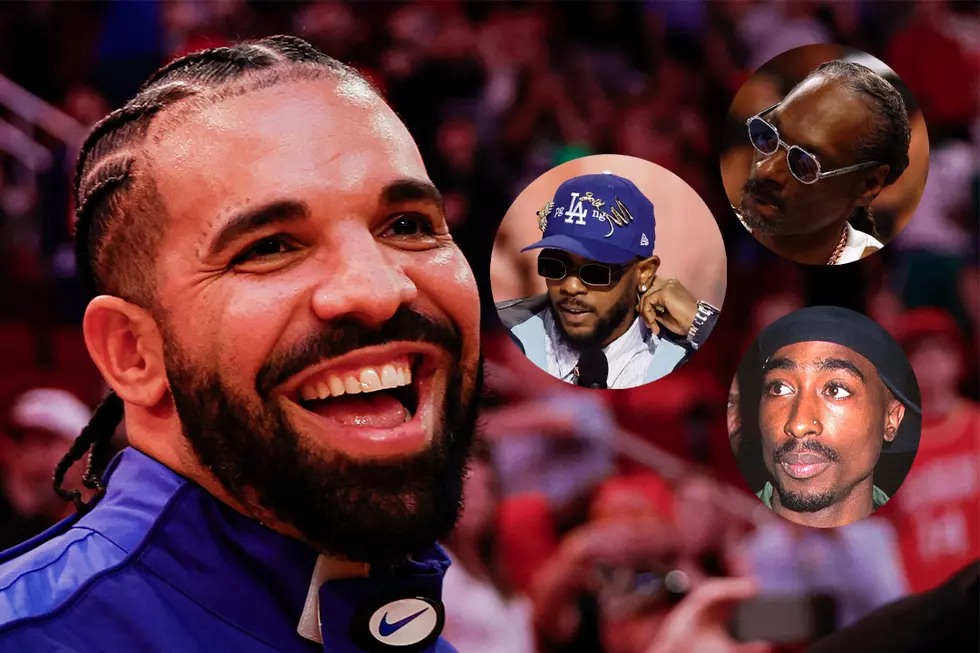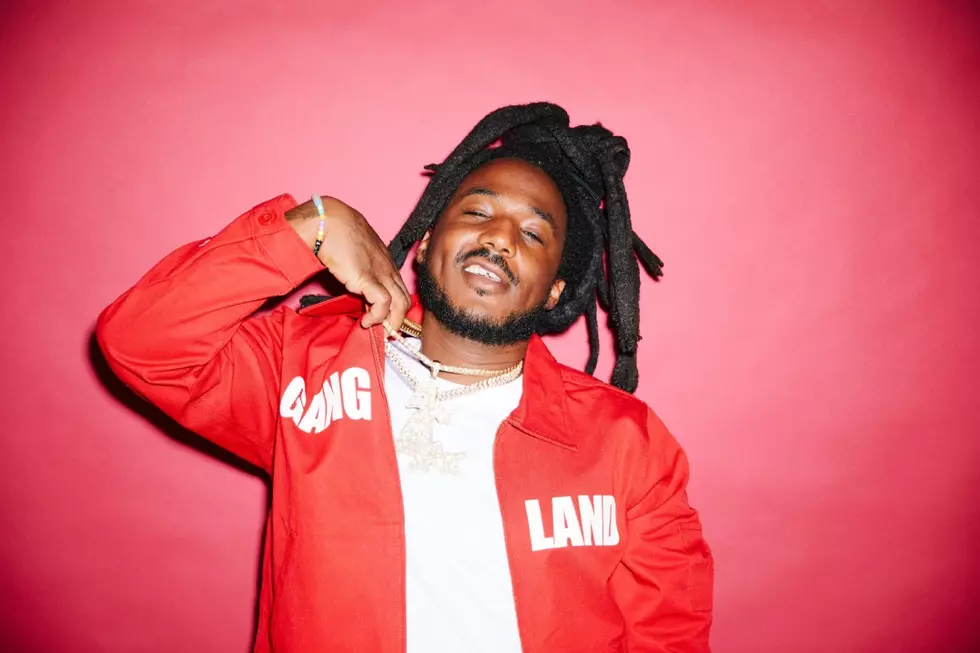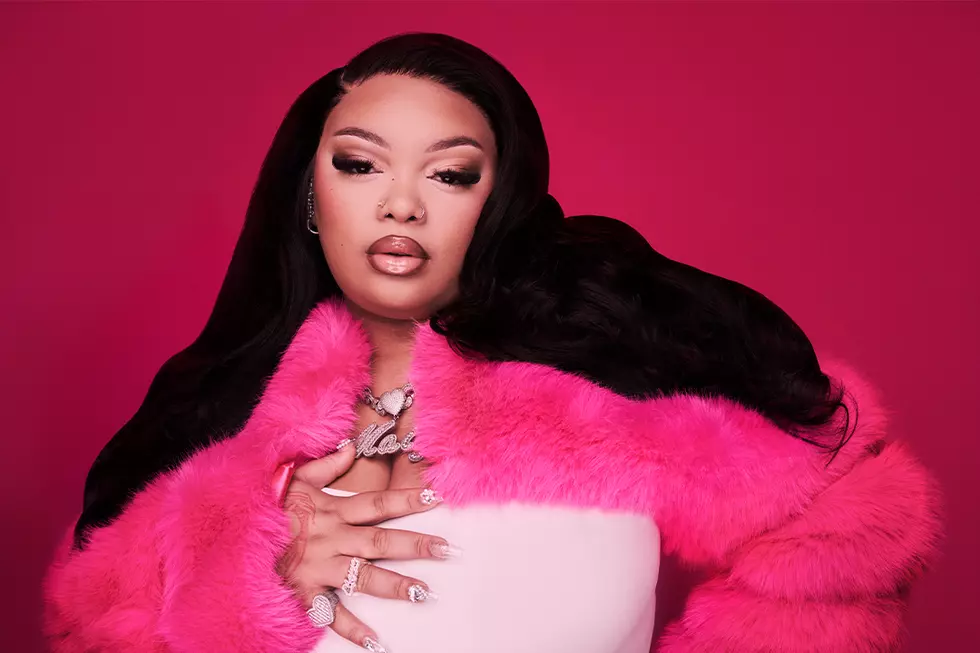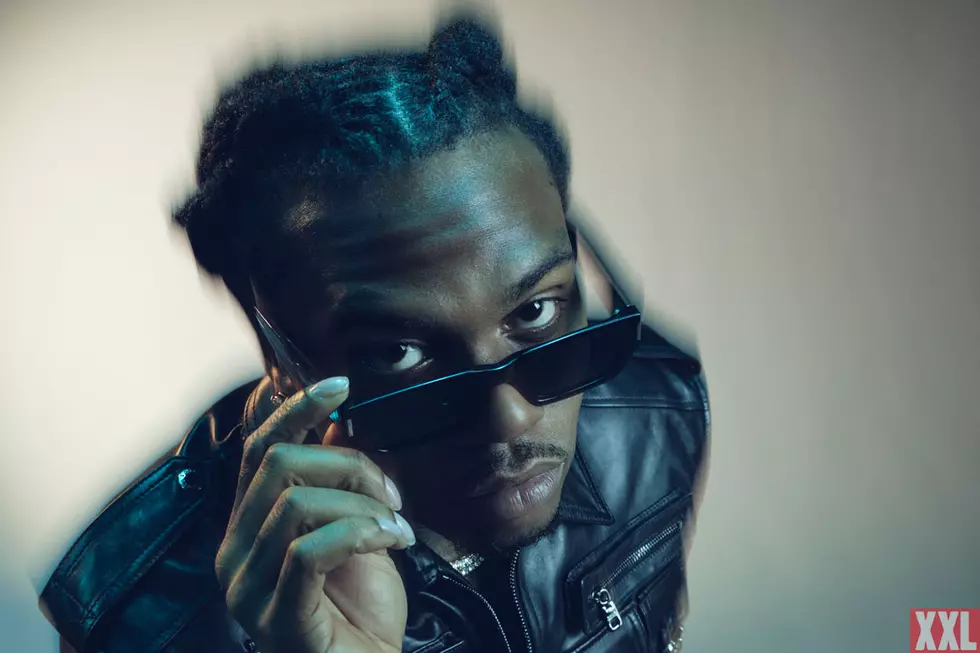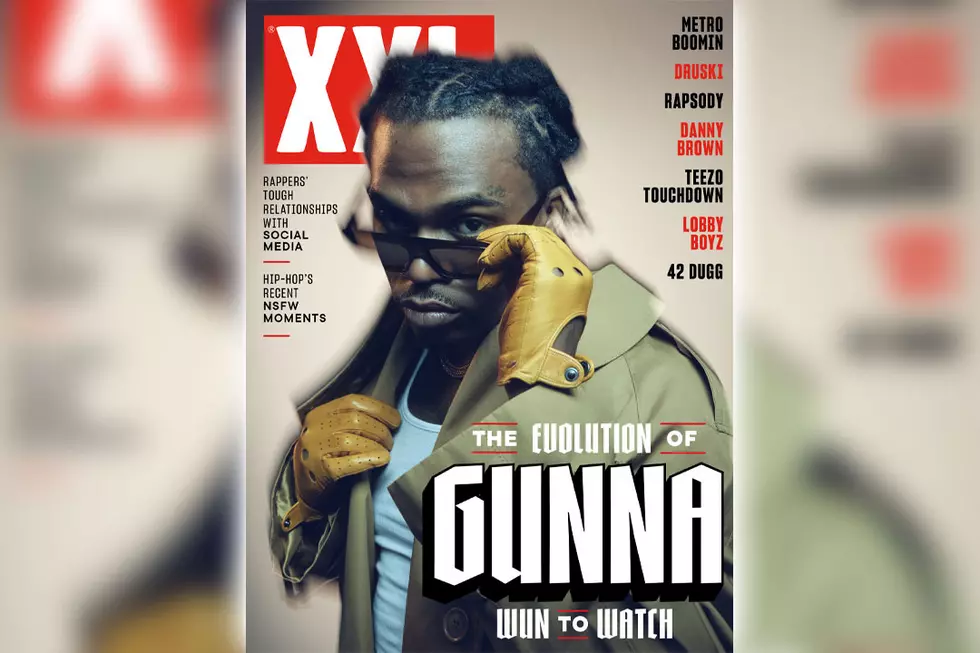
A Look Back At Snoop Dogg’s ‘Doggystyle’ 20 Years Later
Ed. Note: Snoop Dogg's classic Doggystyle album turns 20 years old tomorrow, November 23. Michael Gonzales takes a look back at what led to the album, its reception, and how it changed hip-hop in the two decades since.
Twenty years ago when Snoop Doggy Dogg’s raw debut Doggystyle (Death Row) was released, people were fiending for the latest dose of "G-funk" music as though it were a new street drug. In the same way folks today stand on line waiting for the latest PlayStation or smart phone to go on sale, hip-hop heads rushed record shops across the country on November 23, 1993 to buy Doggystyle. Never mind what the Wu-Tang Clan, A Tribe Called Quest or any other "East Coast" artists were doing back then; that Autumn day it was all about the West.
Snoop, recruited by former Ruthless Records producer Dr. Dre—the two were introduced by Snoop's step-brother Warren G—was a 21-year-old kid when he appeared on the “Deep Cover” soundtrack single the year before. The “Deep Cover” single was also the introduction of the G-funk era. As the title track to a crime flick starring Laurence Fishburne and directed by Bill Duke, the song became more popular than the movie itself. Funky as a baby’s diaper, Dre sampled Sly Stone (“Sing a Simple Song”) and the Undisputed Truth ("[I Know] I’m Losing You”) to create one of the coolest movie jams since the days of Shaft, Super Fly and, Snoop’s cinematic hero, The Mack. “Deep Cover” also courted controversy when many listeners wanted to believe that Snoop’s sinister sounding lyrics about a “187 on an undercover cop,” which translated to “a dead cop on the scene,” was something the blue-wearing Crip-affiliated rapper might do for real.
Certainly, though Snoop was a church goin’ boy when he was a youngster, he had been titillated by the hustler aesthetic for years. In 1999, while Snoop and I chilled in his studio, he confessed, “There was a bar where all the Long Beach hustlers hung out. All you could see was Cadillacs and brothers flashing jewelry and wearing fly shades. I thought those were the baddest motherfuckers on the planet, and I wanted to be just like them.”
While “Deep Cover” served as the perfect introduction to the Southern drawl of Dogg, whose family moved to the Promised Land of California from Mississippi, the song was only a prelude to the simultaneously gritty and funny journeys detailed on Dr. Dre's The Chronic a few months later. Friends and labelmates Daz Dillinger, Kurupt, Nanci Fletcher, RBX, Jewell, Lady of Rage, Warren G and the late ghetto harmonizer Nate Dogg were also a part of the G-funk experience.
Snoop played a prominent role on The Chronic, and less than a year later he was in the motherfuckin’ house with his own album. “Those guys single-handedly redirected hip-hop over to the West Coast,” says Kevin Powell, president and co-founder of BK Nation. “The mega-success of Dr. Dre's The Chronic, of which Snoop was clearly the star rapper, made Doggystyle a must-have product.”
Two months before the release of Snoop’s album, Powell, then a full-time hip-hop journalist who would do a series of distinguished features on Death Row, interviewed the towering 6’ 4” rapper for Vibe magazine’s premiere issue, which featured the Dogg on the cover. “It started with Dre's group N.W.A., and also solo acts like Ice-T and Ice Cube, but with The Chronic and then Snoop's Doggystyle, the West Coast solidified its place as a powerful part of the national hip-hop conversation," he says.
Influenced by the flow and storytelling abilities of Slick Rick, who he covered on the song "Lodi Dodi," the young rapper couldn’t wait to start painting verbal pictures of his community: the various hood rats, “Rollin down the street, smokin’ indo,” drug dealing, gat shooting homies ("Murder Was the Case"), gold diggin’ girlies and broke boys guzzling 40 oz brews (“Ain't No Fun If the Homies Can't Have None”).
For many of us who had come of age in the late-1980s, when Dr. Dre first arrived onto the scene with N.W.A. on the crazed Straight Outta Compton (1988), he had already proven himself a dazzling sonic force. Collaborating with group members Eazy-E, who was also the co-owner of Ruthless Records, and Ice Cube, MC Ren and DJ Yella, their brutal songs “Fuck the Police” and “Gangsta Gangsta” propelled them to stardom without much radio play.
However, when his money got funny in 1991, Dre hooked-up with a Blood-inspired devil named Suge Knight and went on to create Death Row Records. In the end, a few years later, it would all crumple like dirt; Tupac, who joined them in 1994, would be slain, Suge would be locked up, and Dre and Snoop would be fearing for their lives.
Yet in the beginning, when Death Row was all sweet, all honey, the former choir boy named Calvin Broadus (whose mama called him Snoopy) was on his way to becoming a superstar. As Oliver Wang says, "'Deep Cover' was the tease, The Chronic was the intro, but Doggystyle was the confirmation."
Two decades after Doggystyle dropped from the hip-hop heavens onto a "highly anticipating" public, rap music connoisseurs who still hear the freshness of Dre’s funky soundscape have called the record a "sonic masterpiece." While others blast the man for using too much old school funk in his tracks, as though he were keeping George Clinton and Zapp chained in the basement, others are secure in their beliefs that Dre was simply a genius.
“Snoop and Dre took a lot of flak for initiating all kinds of G-funk clones in their wake but that's like blaming Tribe for inspiring all kinds of mediocre jazz-hop clones to emerge after them,” Oliver Wang says.
From the offices of BK Nation, Kevin Powell adds, “When you listen to Doggystyle you hear the incredible history of Black music with the beats Snoop and his guests are rhyming or singing over,” Kevin Powell says. “It is like a musical journey through classic soul and R&B and gut-bucket funk.” Later, from his apartment in Brooklyn, he thinks back to that era fondly. "The fact that The Dramatics are guests on the title track, or that David Ruffin, Jr., son of the legendary Temptations singer, sings the hook on 'Gin and Juice,' is pure genius. Back in 1993 there was still a level of sampling and searching for the roots of Black music that was very evident in discs like Doggystyle. And a great respect for the music that had come before."
But though they respected the music, Dre, Snoop and the boyz in the hood that appeared on Doggystyle had a real problem with women. Looking at the crudely drawn cover, a sexist take-off of Pedro Bell’s bizarro Parliament/Funkadelic art illustrated by Snoop’s cuz Joe Cool, we see a female dog bent over, her head inside the dog house as she waits to be boned. Meanwhile, the lyrics on the songs and skits was more than some female fans could take.
"I don’t think I ever made it through the whole Doggystyle album,” says feminist writer fayemi shakur. “As a girl who loves hip-hop, it was just too hard on my ears. I wasn't surprised when Dolores Tucker and other black leaders stomped all over gangsta rap and music degrading to women. On the flip side, Snoop introduced us to Lady of Rage (“G Funk Intro”) and she was badass.”
Yet, as Kevin Powell points out, misogyny was only the beginning of Snoop’s bad behavior. “Doggystyle helped to further normalize the N word in hip-hop, the love of drugs and liquor, as well as the reckless disrespect for women,” he says. “No one album did that by itself, but Doggystyle helped to spread a trend that we have now, unfortunately, been stuck with for two decades. Nothing wrong with reflecting what is going on in the hood. We should. Nevertheless, there is something wrong when there is no balance to all the negativity.”
Since its release in 1993, Doggystyle has joined the canon of wonderful California classics that includes Pet Sounds (the Beach Boys), Rumors (Fleetwood Mac) and the disco singles of Barry White. Twenty years later, Snoop and Dre’s songs “Who Am I (What’s My Name”), “Doggy Dog World” and “Gin and Juice” sound as fresh as they did back in the day.
Without a doubt those Doggystyle songs are played regularly at weddings and wakes, birthday parties and Bar Mitzvahs. “Doggystyle gave Snoop a permanent place in hip-hop history,” Kevin Powell says. "You cannot discuss hip-hop of the 1990s in general, or the West Coast specifically, without discussing Snoop Dogg." —Michael Gonzales (@GonzoMike)
More From XXL
